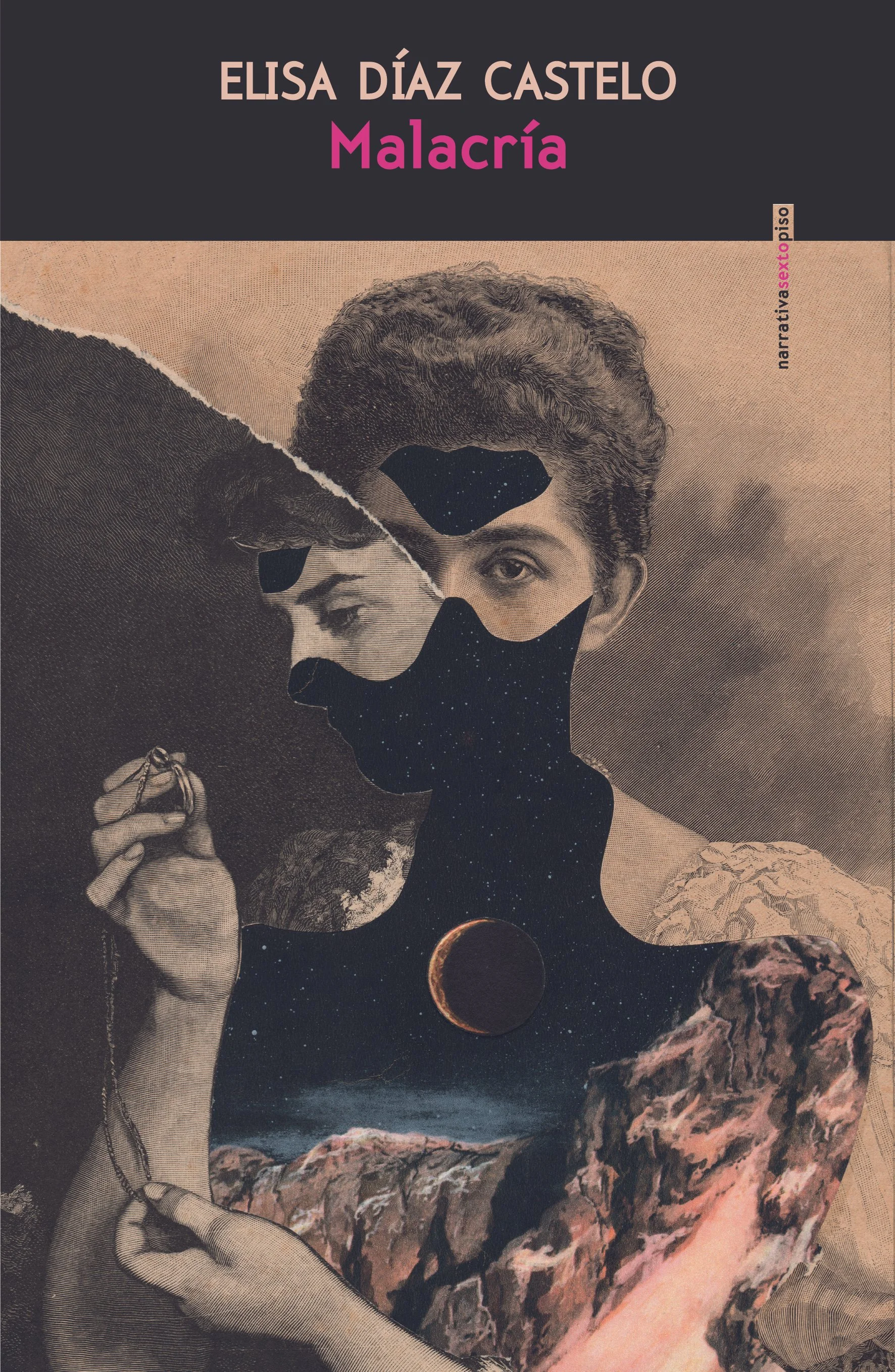Malacría
Elisa Díaz Castelo
NOVEL | 2025 | 266 pages
How do the pasts that live inside us—including those that we have no knowledge of—affect the present? Malacría, Elisa Díaz Castelo’s marvelous debut novel, explores these territories through the intergenerational history of three women and the thread of violence that moves through them.
One morning, after feeding the dogs, Ele’s mother leaves her house and doesn’t come back. Hours later, a young Eli and Jeni, her mother’s partner, set off on a search with Valeriana, an endearing dog who becomes a protagonist of the story. As they follow the clues that the missing woman has left behind, like pieces of an incomplete puzzle, the family’s multiple pasts appear and reappear, scattered through brief textual fragments. Through these windows into reality and the protagonists’ inner worlds, Malacría also acts as a small fresco of the feminine experience in 20th and early 21st-century Mexican society.
Much like classical tragedies, this intergenerational story poses a question: isn’t the thing that seems to protects us from reliving trauma precisely what ends up putting it directly in it?
RIGHTS: spanish SEXTO PISO
“With precise prose that is full of discoveries, Elisa Díaz Castelo unravels the story of three generations of women: a lineage of absences, houses in ruins, and inhabitable secrets. Malacría is the first novel by writer with multiple talents with a keen eye toward the way poems are forged and an intelligence that wanders from erudition to mystery.”
“To enter this novel is to fall under the spell of Elisa Díaz Castelo’s prose and poetry. I’m captivated by this lineage of solitary women who get lost and find each other in parallel universes. They’ll stay with me forever.”
“A work of mystery, fantasy, ghost dogs, imaginary planets, wounds that never heal, escapes and reunions, all told in confident, clear prose that doesn’t overuse poetic lines or philosophical reflections. A novel to read and reread.”
“Malacría is an intimate novel as well as a fantastical one. It explores emotional bonds but also the construction of one’s own identity. It leaves room for warmth and desolation, constructing an effective narrative that doesn’t shy away from avant-garde ruptures and resorts to humor as much as sordidness. (...) Díaz Castelo’s approach is decidedly contemporary, in that it traverses the main concerns of her generation: sorority, sexist violence, mental health, non-traditional families, caregiving, the normalization of same-sex relationships, attachment to pets, and the rescue of abused animals.”
“With poetic prose that explores science, memory, and the female body, the Mexican writer constructs a novel of silences, scars, and broken bonds that continue to float in the air even when they are no longer visible, like dust.”
“With the intergenerational story of Ele, Perla, and Cecilia in Malacría (Sexto Piso, 2025), writer Elisa Díaz Castelo has confirmed that she possesses the same intuition and talent that have made her one of the most important contemporary Mexican poets when it comes to writing prose. In this book, the extended prose has the efficiency of her constrained verse, and nothing seems haphazard: each word is precise, and each sentence moves between different levels of meaning, so that the story is not only told, but also felt.”
“Elisa Diaz Castelo creates a plot of absence, of timeless traces suspended in a past that always takes place in the present. The language not only narrates: it also carries memories, silences, and wounds; it snarls, bares its teeth, looks into mirrors, enters them, and sees, finally, ships on fire. Prose and poetry are often thought of as opposites, but in Malacría, prose yields to the cadence of the images, to the mystery of words that hold more than what they say: a fake covering of the present and of that past that is perfect in its artifice.”
“With her debut novel Malacría, Mexican poet Elisa Díaz Castelo delves into the darkest corners of family memory. Fragmented, lyrical, and deeply emotional, the novel traces the trauma passed down through generations of women who have been marked by silences and absences.”
“Elisa Díaz Castelo has written a beautiful and moving story about inherited wounds—the ones that it takes us an entire lifetime to name and that remind us that the body’s present is always inhabited by the lives of the people we love.”
“Family wounds are inherited, and that is one of the foundations of this book gifted to us by Elisa Díaz Castelo that is so strong and so beautiful. However, a layer of complexity is added in its execution: could family wounds, beyond inhabiting our bodies, also reside in our writing? And if so, is it possible then that old scars also reside in the viewpoints of those who read us? I think so, given that I left this book wounded but also healed. I left battered, but also blessed; I left overwhelmed by its beauty but also stabbed by its lyricism. I can only say thank you.”
Malacría
FICTION, 2025
El libro de las costumbres rojas
SHORT STORIES, 2023
Proyecto Manhattan
NON FICTION, 2021
El reino de lo no lineal
POETRY, 2020
Principia
POETRY, 2018

